Reforestation activities
- JAC TOP
- Sustainability
- Reforestation activities

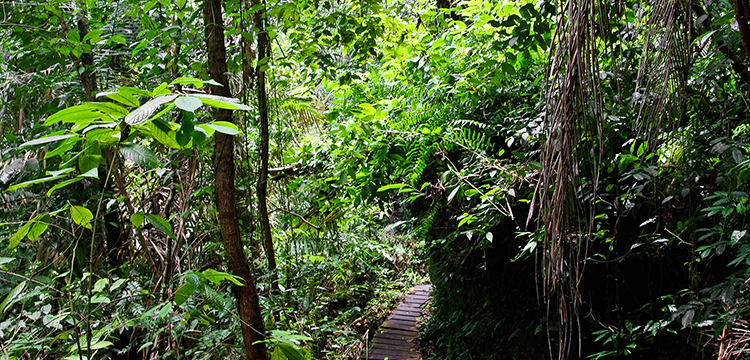
One Placement creates One Plant to save the Planet
Planting the hope of our clients, our candidates, and the Planet
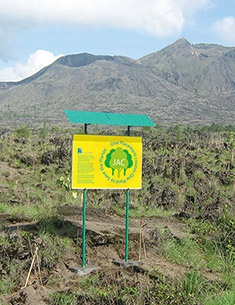
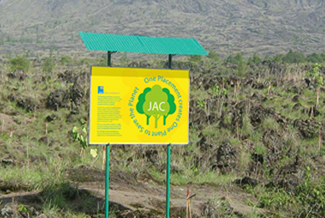
Since 2008, even before the SDGs were formulated, the JAC Group has been involved in reforestation activities in Southeast Asia under the slogan "One Placement creates one Plant to save the Planet".
By planting a tree for each person who has changed jobs through a JAC Group company, we can express our hope for the continuous development of our client companies and the individuals who grow their careers in them, while at the same time contributing to the fight against global warming.
As a global recruitment agency, it is our desire to promote environmental conservation on a global scale. We believe that the restoration and protection of tropical rainforests is an invaluable first step towards combating the threat of climate change and restoring health and beauty to our planet.
Contributing to SDGs 15 “LIFE ON LAND”
Forest regeneration through afforestation activities stores precipitation and mitigates flooding. In addition, water quality is purified as rainwater passes through the forest soil. Rich forests protect the ecosystems of orangutans and other valuable wildlife, preventing the loss of biodiversity. JAC Group is also committed to the conservation of the forests where orangutans live and to the protection of orangutans through the Orangutan Conservation Centre in Borneo.
Our Tree-planting locations and cooperating organisations
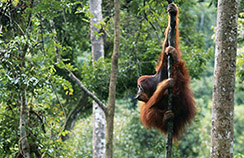
- Bali (Penelokan District, Kintamani County, Banli Province, Bali, Republic of Indonesia)
- Cooperating organisation: NPO Asian Green Forest Network
- Borneo (Apeng Forest Reserve, Sarawak Province, Borneo Island, Malaysia)
- Cooperating organisation: Japan Malaysia Association
Our activity and achievement in Bali-Island, Indonesia
Since 2008, the JAC Group has been involved in reforestation activities in Bali, Indonesia, through the non-profit organization NPO Asian Green Forest Network (AGFN), to restore the original aquifer and watershed function* of the forest by planting indigenous tree species such as ampupu (Eucalyptus urophylla), candlenut (Aleurites_moluccanus) and melina (Gmelina arborea) in the devastated land that was turned into grassland by the eruption of Mount Batur.
* Aquifer and watershed function: The ability of forest soils to store precipitation and equalize the volume of water flowing into rivers, thereby alleviating flooding and stabilizing river flows. It also refers to the ability of rainwater to pass through forest soils, thereby purifying the water quality.
Situation of the plantation area
The situation was becoming critical, with the lake level dropping by as much as two metres partly due to the neglect of the forest lost in the volcanic explosion in 1849. The lava had weathered and turned to sand, and short grass was thriving (left).
The Asian Afforestation Friendship Association has planted 161,184 trees over a 15-year period from 2007 to 2022, and as a result, the forest is gradually recovering(see picture right). Of the planted trees, roughly half have been sponsored by JAC Group. It is recognized by local people that the area can now be called a 'forest' and that the water level of the lake that supplies water for domestic use is also recovering. Tree density is estimated to about 600 trees per hectare.
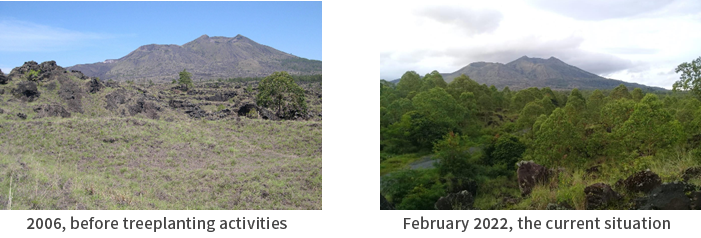
Results
Between 2008 and 2025, the JAC Group planted a cumulative total of 90,100 trees in the Mount Batur area of Bali, Indonesia.
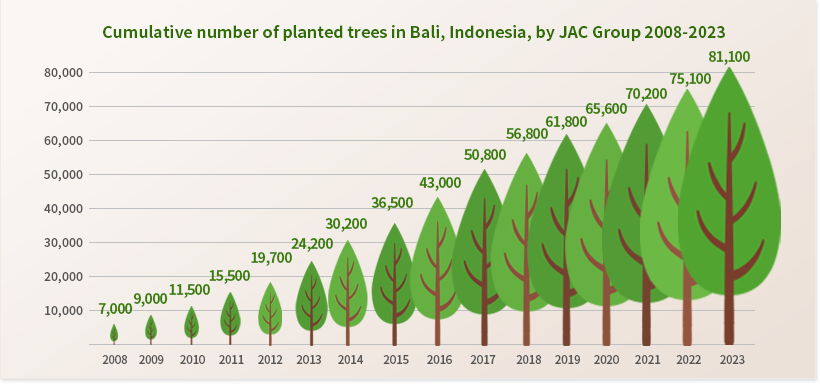
Our activity and achievements in Borneo-Island, Malaysia
Since 2008, the JAC Group has been involved in the restoration of lowland rainforest vegetation in Borneo, Malaysia, mainly by planting native dipterocarp species in secondary forest degraded by logging, and in the conservation of mangrove plantations, through the Japan Malaysia Association.
Through the association, we also support the work of the Orangutan Conservation Centre in Semenggoh Wildlife Sanctuary, Sarawak whose work not only aims to restore and conserve Malaysia's tropical rainforests, but also to save the orangutans and other life forms that inhabit these forests.
The project promotes not only the forest regeneration itself but also the economy of the area, as local people grow seedlings commercially and are directly involved in the tree-planting work itself.
Situation of the plantation area
The island of Borneo, where Sarawak is located, was once a treasure trove of tropical rainforest, but much of it has disappeared due to logging. The Japan Malaysia Association has been involved in reforestation activities for tropical rainforest regeneration since 1995, and the JAC Group has supported these activities through the Association since 2008. Activities in 2021 included sowing and management of seedlings in Apen and Sabal National Parks, maintenance and ground preparation work for previously planted trees, and new tree planting, as well as purchasing seedlings grown by women's groups in local villages. The program will continue as a livelihood improvement program for village communities. Donations have also been made to the Semenggoh Wildlife Rehabilitation Center for the protection of orangutans.

Results
Between 2008 and 2025, the JAC Group planted a cumulative total of 81,784 trees in Borneo, Malaysia.
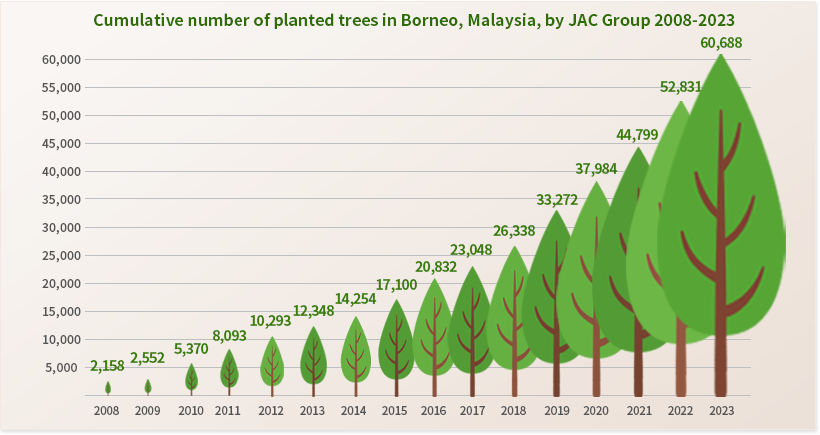
Sustainability
- My thoughts on SDGs, JAC Group Founder
- SDGs related initiatives
Value Creation Stories
Environment
Social
Governance
Participation in Initiatives and External Evaluation
- ESG data